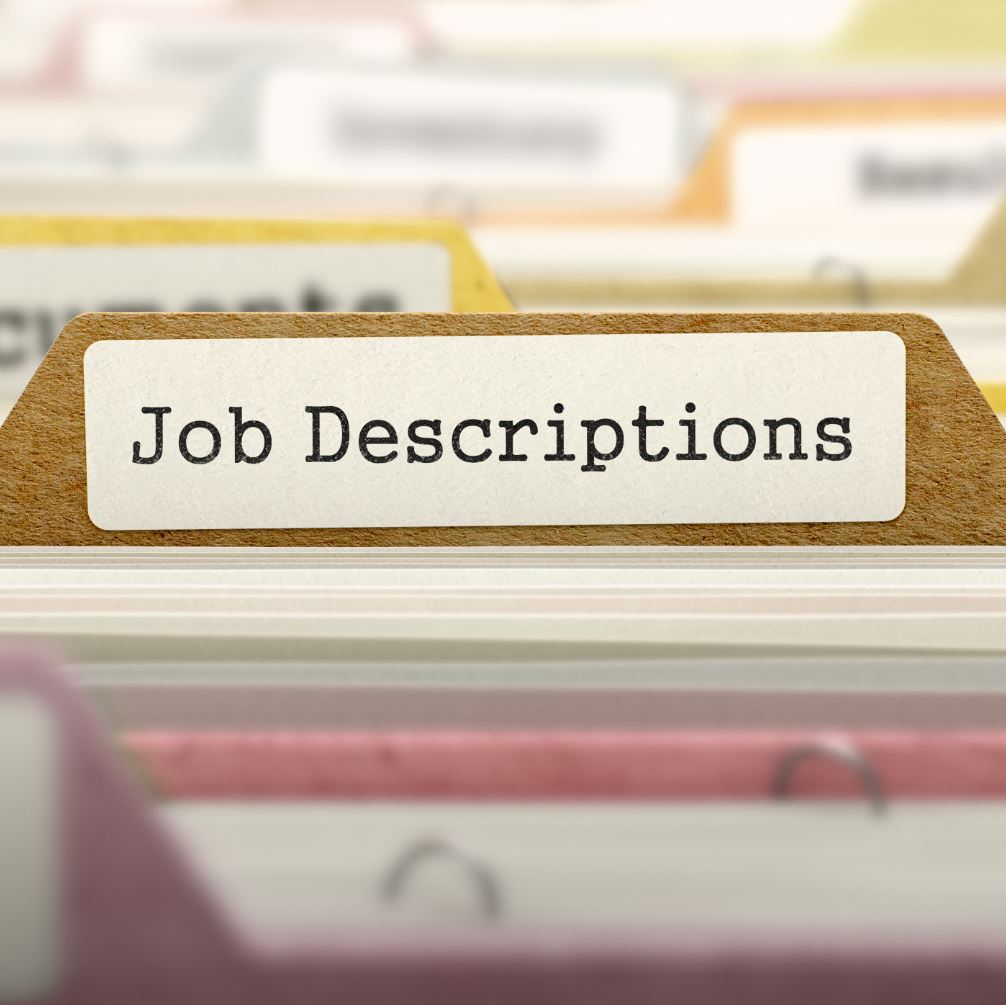This website uses cookies so that we can provide you with the best user experience possible. Cookie information is stored in your browser and performs functions such as recognising you when you return to our website and helping our team to understand which sections of the website you find most interesting and useful.
How to Write a Captivating Job Description

An effective job description defines exactly what you are looking for in a candidate. It helps you, as a hiring manager or business leader, focus on the experience and skillset needed for the position. The advantages of having a high-quality job description can not only help you reel in the right candidate but help keep your team organized in many ways.
We asked our Human Resources (HR) experts to provide a few tips on how to write a job description. See their suggestions below.
- Use an organized, visually pleasing layout. A job description may be the first chance for you to entice potential candidates. Make their lives easier by breaking up the description into different sections, using bullet points instead of long paragraphs, and adding a bit of personality to the language.
- Write a job description as if you were listing the goals you want the person in this role to accomplish. Job descriptions are critical for performance management. With the key responsibilities outlined in the description, it’s easier for supervisors to develop goals and expectations—and it’s also a great way for everyone to be on the same page. Good job descriptions will provide employees enough information that they should be able to self-manage their performance and seek training help if needed.
- A good job description can serve as a tool to competitively compare your salary and benefits package to the market. When writing the description, have an idea of the salary you associate with the position. This will determine whether the role is entry-level, senior, or corporate level. Benefits packages can be decided at this point too, as part-time employees usually receive different benefits than full-time hires. Compare your ideas for salary and benefits to similar positions in the market to see where your company stands competitively.
- A good job description highlights compliance and reporting requirements. Not only should it give a clear picture on the position, it must also offer information on compliance and management. By reading the job description, an individual should be informed of employee rights requirements and be able to identify who oversees and manages the role.
- A job description sets the stage for orientation and training. Make sure to provide the necessary skills, experience, and talent that candidates need to meet the position’s requirements. When the job description contains accurate information, it serves as a ready-made, individualized training tool.
- Nothing outweighs the benefits of utilizing a qualified, experience HR professional, especially when it comes to designing the best job description for open roles in your organization. To start the hiring process off right, we encourage you to check out our HR services and contact us. From recruitment and compensation to training and employee relations, leaders in HR are equipped to take on a variety of responsibilities.
These are just a few of the many ways in which you can write a more effective job description–see our previous article on 4 Characteristics of a Good Job Description. If you would like more tailored advice, contact our Human Capital Management Consultants. And once you’ve written the perfect job description, next learn how to turn your website into a powerful recruiting tool.
In Summary:
An effective job description should:
- Define exactly what you are looking for in a candidate.
- Help you, as a hiring manager or business leader, focus on the experience and skillset needed for the position.
- Possibly be used to create screening and interview questions, as well as serve as the ideal resource during employee performance evaluations.
This publication contains general information only and Sikich is not, by means of this publication, rendering accounting, business, financial, investment, legal, tax, or any other professional advice or services. This publication is not a substitute for such professional advice or services, nor should you use it as a basis for any decision, action or omission that may affect you or your business. Before making any decision, taking any action or omitting an action that may affect you or your business, you should consult a qualified professional advisor. In addition, this publication may contain certain content generated by an artificial intelligence (AI) language model. You acknowledge that Sikich shall not be responsible for any loss sustained by you or any person who relies on this publication.




